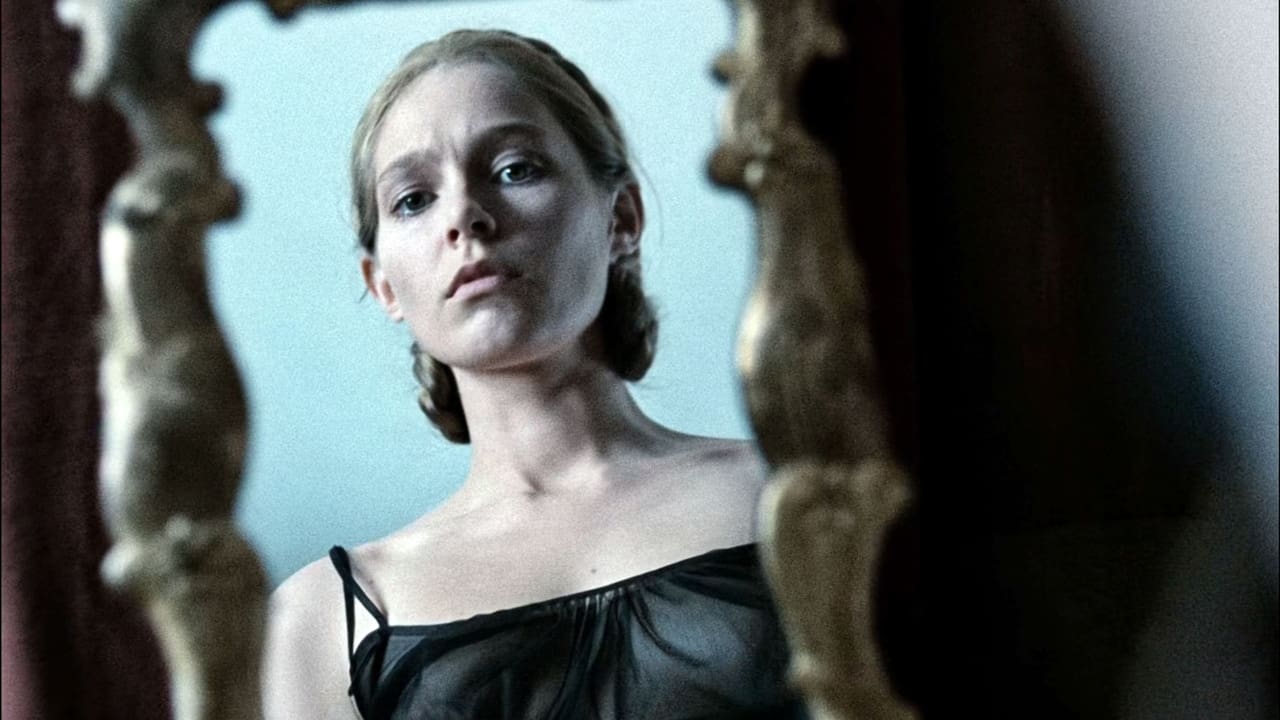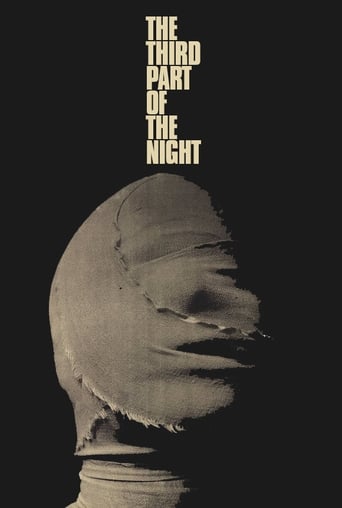

Let's be realistic.
... View MoreIt's fun, it's light, [but] it has a hard time when its tries to get heavy.
... View MoreOne of the best movies of the year! Incredible from the beginning to the end.
... View MoreOne of the most extraordinary films you will see this year. Take that as you want.
... View MoreI have watched into the void and it's filled with lice. The Third Part of the Night has been described as many things, but HORROR is the one word that makes justice to it. The one thing mostly remotely like it are the Silent Hills games and Come and See. At first I could not tell that the film was set in WWII, but when it became apparent to me, the riddle of the film also became apparent. Most of the film is actually a rather straightforward film, but the way the events are realized it becomes a surreal vision of the end of the world. I have trouble describing it other than a disturbing nightmare about the end of time. A furious debut of a filmmaker, possessed by the Gods of film, who summon a town beyond space, time and hope.
... View MoreI don't like to treat movies as simply fictions to pass the night, that way lies the habit of simply partaking of culture. The whole point is that we're roped in life by forces that have significance for us - and if film is to be a truthful reflection, it will devise ways to portray this pull, turn it into something we can see.This is how I welcome Zulawski. It's not because of what he has to say or because themes might be important, here Polish life under Nazi horrors. Similarly I don't reject him because stories are muddled or the acting is hysteric. I welcome him because he can use the eye of the camera to rope forces that move us.On the surface this is a glimpse of anguished life during WWII, but not the mock historical type that seeks to enshrine bygone events in pious ceremony. This is one that speaks very much about anxiety that haunts the soul now in this very life, rending the air with dread and confusion. Horror that is very much present and didn't go away with the war but still lingers. He would rail - more or less covertly - against a repressive Soviet regime in later films as well.So he's angry with god that won't manifest, he shouts dejection at a broken state of things, everything he would become known for is already present here, fully formed as template. But no answer can be found in the mind that despairs and clamors and none would suffice to explain anything. No his power is that he can show these things truthfully for what they are, confusion as confusion, ignorance as ignorance. So of course the narrative becomes oblique, muddled, sense takes flight and we're left with fragments.He's still striving to burst forth here, not yet channeling madness through the eye to alter how we see. That would come to him in due time. But everything you need to know about him you'll see in the very beginning of this first film.A man's wife and child are taken from their house one day and murdered in the yard; evil that swoops over this world and wrecks lives. He joins the resistance and immediately people are chasing after him and shooting to kill him, agents of that evil. So he hides in an apartment building and by a chance turn of fate, police arrest someone else in his place, someone with the same color of coat who was going up the stairs to a pregnant wife. In a stunning turn he helps the wife give birth, becoming the husband who was taken away.Jancso and Tarkovsky were previous masters of the floating eye who could maintain equanimity in the face of horror and misfortune; he is ruptured by it, splintered in selves. But it's still the same deep roar from the engines of consciousness that propels him.
... View MoreThe film begins with a young woman reading from the Book of Revelation. It returns to the same scene again and at the end; in the meantime the film's narration, a strange, hallucinatory circle around the Institute for research into lice in Lwow, the only Polish academic institution the Nazis left open in Poland in the second world war, centring on Michal, the putative father of the young woman's son, Michal's family and the Resistance, circling back to what brought Michal, Marta and his parents to a supposedly safe place. It isn't safe, of course; Michal's mother, Marta and his son are soon killed by German cavalrymen. The film moves back to earlier betrayals and forward to the deaths of Michal, his family and most of the film's characters. We learn- and see- more of the feeding habits of lice than we ever knew before and than most of us would ever want to know and learn more of the resemblances between humans and lice. It might be Michal's fantasy as he suffers from typhus; it might be "reality"; whatever it is this is an astonishing and hallucinatory film. Early Polish films looked at the physical aspects of war; this is about the psychology of it and the psychological effects.
... View MoreJust watched the excellent Second Run DVD release of this film, and I was not disappointed. He must be one of the most underrated directors alive at the moment. In each of his movies (I have only seen two others) he manages to create an amazing cinematic velocity, you are not sure about the meaning and of the plot twists, but you are defenseless against the intensity of the camera-work, editing, performances and staging. He uses film in the way I usually find most interesting, to convey dream states and give fragmented views into other worlds, in that sense he is like Bergman when he was at his best. I can't help comparing the two since Bergmans recent passing and my seeing this film happened almost simultaneously...Watching this film is like experiencing someones nightmare, based in a gritty reality but at the same time far removed from it, and also managing to convey political issues in a non-realistic way. Which is the way I prefer, not ramming it down the audiences throats, but keeping it in the subtext for you to explore if you want.
... View More